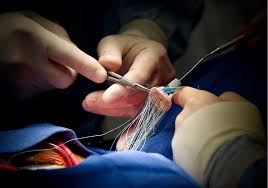
Study Finds Transcatheter Tricuspid-Valve Replacement Outperforms Medical Therapy in Severe Tricuspid Regurgitation
For patients suffering from severe tricuspid regurgitation, a study published in the New England Journal of Medicine on October 30 has revealed that transcatheter tricuspid-valve replacement offers significant benefits over traditional medical therapy alone. This research, presented at the Transcatheter Cardiovascular Therapeutics conference in Washington, D.C., highlights advancements in treatment options for a challenging cardiac condition.
The study, led by Dr. Rebecca T. Hahn from Columbia University Irving Medical Center, involved 400 patients with severe symptomatic tricuspid regurgitation, a condition where the heart’s tricuspid valve fails to close tightly, causing blood to flow backward into the right atrium. Patients were randomly assigned to receive either a combination of transcatheter valve replacement and medical therapy (267 patients) or medical therapy alone (133 patients).
After one year, results showed a strong preference for valve replacement with a win ratio of 2.02, indicating that patients in the valve-replacement group fared significantly better. Those who underwent valve replacement saw improvements in key health measures, including a reduction in all-cause mortality (14.8% vs. 12.5% in the control group) and lower rates of additional tricuspid-valve interventions (3.2% vs. 0.6%).
Additionally, the valve-replacement group reported better scores on the Kansas City Cardiomyopathy Questionnaire (23.1% vs. 6.0%), which measures the quality of life in heart failure patients, along with enhanced New York Heart Association (NYHA) functional class scores (10.2% vs. 0.8%) and longer six-minute walk distances (1.1% vs. 0.9%).
While the valve-replacement group saw fewer annualized hospitalizations for heart failure (9.7% vs. 10.0%), they did experience a higher incidence of severe bleeding events (15.4% vs. 5.3%), highlighting the need for caution when weighing risks and benefits of the procedure.
“Transcatheter tricuspid-valve replacement plus medical therapy proved superior to medical therapy alone for patients with severe tricuspid regurgitation,” the study authors noted, underscoring the procedure's potential to transform the treatment landscape for this condition.
As cardiac research progresses, these findings mark an important step forward for patients and clinicians seeking effective treatments for tricuspid regurgitation, particularly when medical management alone proves insufficient.